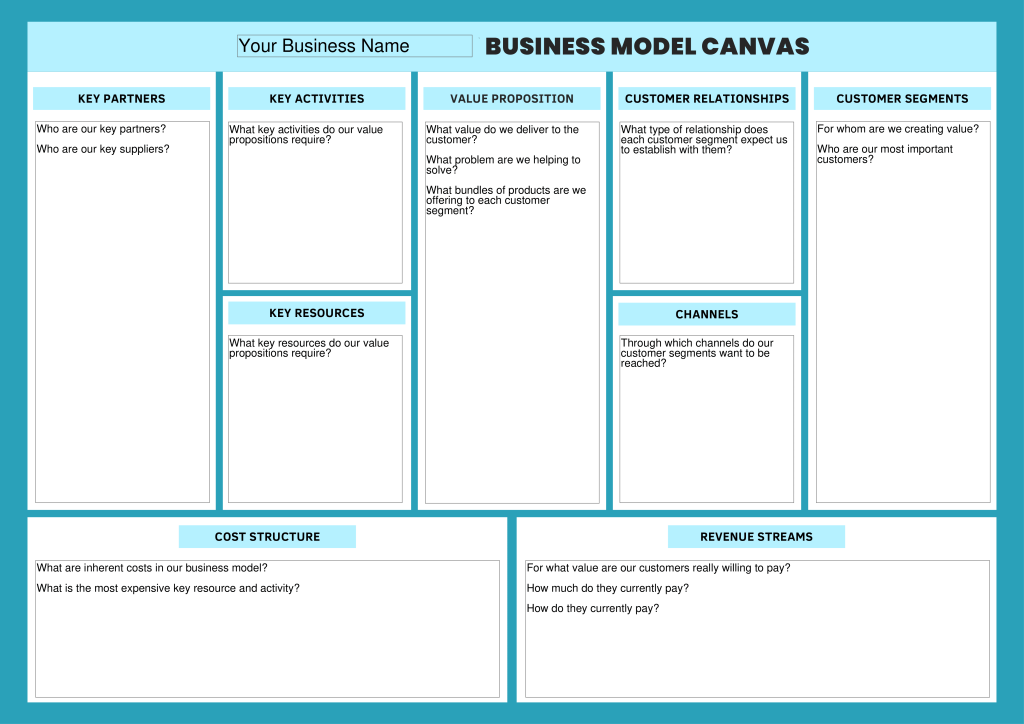A Full Guide To Opening A Café In Malaysia
From the humblest mall kiosk to the most high-end of coffee shops, the processes and licenses required to open a café in Malaysia are pretty much the same.

And so, this guide provides new entrepreneurs with a high-level understanding of how to set up a café in Malaysia, both as locals and foreigners.
Here’s how we’ve broken it down:
- types of business entities
- finding premises
- mandatory (and optional) licenses
- how to apply for them, and
- a business canvas template to plan out your cafe
Let’s begin.
Note: This guide was written to help everyone, including those without business experience, so if you’re already familiar with any topic, just skip to the next section!
Business entity
To operate a cafe legally, rent a premise, and apply for licenses, you need a business entity to run your café.
SMEs in Malaysia can choose from four types of structures:
- Enterprises
- Conventional partnerships
- Limited Liability Partnerships (LLP), and
- Sendirian Berhads (Sdn Bhd)
Foreigners are limited to LLPs and Sdn Bhds, but locals can choose any of the four, and here’s a quick side-by-side comparison of each entity:
| Criteria | Sdn Bhd | LLP | Conventional Partnership | Sole Proprietorship |
| Formation Costs | Highest | High | Low | Low |
| Owner(s) | Shareholders own ‘shares’ in the company | Partners own shares in LLP profits | Partners directly own business | Sole owner directly owns business |
| Number of Owners | Min 2, max 50 | Min 2, no max | 2–20 partners | One |
| Liability for Business Debts | Business entity | Business entity | Owners | Owner |
| Tax on Profits | Corporate tax (15–24%) | Corporate tax (15–24%) | Personal income tax (0–30%) | Personal income tax (0–30%) |
| Compliance Requirements | Highest | High | Lower | Lowest |
Key takeaways:
- Sdn Bhds and LLPs cost more but protect owners from business debts
- Conventional Partnerships and Enterprises cost less but expose owners to personal liability
- corporate tax means higher obligations at low profits, but lower at high profits
Conventional wisdom: Start with a Sole Proprietorship (or Partnership if with partners) as it has the lowest upfront and ongoing costs, provided you are intelligent about managing risk.
If and when profits are high enough that you’d pay less through corporate tax rates, you then convert your business into a Sdn Bhd.
However, we say go with a Sdn Bhd if you can afford it due to the invaluable limited liability protection, which we have personally seen save many entrepreneurs!
Here are dedicated guides on this topic for those interested:
- comparing four main business entities for SMEs in Malaysia
- the Sole Proprietor’s guide to Income tax in Malaysia
- signs it’s time to upgrade your Enterprise to a Sdn Bhd
Your choice of entity today affects your business operations for years to come, so don’t rush into a decision, and we’d be happy to chat and advise you on the best choice for your situation.
Suitable premise
By ‘suitable premise’, we mean compliance with local authority requirements for F&B outlets.
Commonly called PBTs (Bahasa Melayu for Pihak Berkuasa Tampatan), they issue the crucial composite license that allows your cafe to operate in a shop and display a signboard.

Your café premise must meet your district authority’s rules on:
- general hygiene
- location, and
- operational standards
Each PBT sets their own rules, and we’ve written F&B license guides for popular areas in the Klang Valley:
Otherwise, find out your PBTs restrictions and requirements before you sign a tenancy agreement!
Mandatory and optional café licenses
Here are licenses your business could apply for before operating as a café, depending on what type of coffee shop you want to operate.
| License Type | Issuing Body | Requirements | Validity | Wait Time |
|---|---|---|---|---|
| Premise & Signboard License | Local Authority (Pihak Berkuasa Tempatan – PBT) |
| 1 year | 2–4 weeks |
| Public House Liquor License | Local Authority |
| 1 year | Varies |
| Halal Certification | JAKIM |
| 2 years | Varies |
| Music & Entertainment Licenses | MACP Berhad |
| 1 year | Varies |
| Wholesale, Retail & Trade License | KPDN | For foreign-owned cafés (over 50%) | 2 years | 1–3 months |
| Private Car Park License | Local Authority |
| Varies | Varies |
| Food Handling Certification | Accredited training provider | Per individual food handler | Lifetime | 7 working days |
Cost of café licenses
Premise and signage license fees vary between areas but generally speaking:
- for locally owned cafés, total license costs are well under RM10,000
- for foreign-owned cafés, expect just over RM10,000 for the WRT license
Limitations on playing music
Without a music license, there’s not much you can play besides royalty-free or stock music.
A music license is required if you:
- Control the playlist, or
- Have a fixed set list of music for your café
If you play music in your coffee shop, you need a music license.
Requirements for foreigners
Foreign-owned businesses that sell directly to end consumers (which includes cafés) need to obtain a permit called a Wholesale, Retail & Trade license.
This license exists to protect local micro SMEs, requiring foreigners to demonstrate they are not directly competing with small businesses by having:
- paid-up capital of at least RM1,000,000, and
- a café concept that doesn’t directly compete with local businesses
Alternatively, foreigners can partner with a local Malaysian so the business is technically locally owned— obviously only do this with someone you trust and read up on incorporated joint ventures in Malaysia!
3 steps to setting up a café
While wait times differ slightly between PBTs, this is how it generally works across Malaysia:
| Step | Time Taken | Necessary Documents / Fees |
|---|---|---|
| 1. Company Incorporation | 3–5 working days |
Register on MyCoID and provide:
|
| 2. Apply for Composite License (Premise + Signboard) | 15–30 working days |
Submit to Local Authority:
Fee: Varies |
| 3. Food Handler Training | 7 working days |
Minimum three-hour course (online or offline). Fee: Minimum RM50 per participant |
You can apply for other licenses (e.g. alcohol or music) simultaneously.
Overall, expect it to take a minimum of six to seven months to go from zero to a fully operational café, considering you’ll need to find premises, make renovations, and hire staff.
Create a business plan!
Ever heard of a Business Model Canvas?

It’s a framework to help entrepreneurs define nine key areas of their business idea to assess its viability:
- customer segments
- value propositions
- channels
- customer relationships
- revenue streams
- key resources
- key activities
- key partnerships
- cost structure
With a sector as unforgivable as F&B, you want to enter it as a calculated risk instead of a blind gamble, and ideally, your café should have:
- a unique value proposition (e.g. specialty coffee, dessert pairing, aesthetic theme)
- a clear path to revenue generation, and
- a well-defined target audience

Use our free editable template below!

If it looks good on paper and you’d like to take it to the next step, the MISHU team is always here to help you with the paperwork, for a reasonable fee 😀
Let MISHU help set up your café
We’ve assisted literally hundreds of local and foreign business owners with setting up their F&B outlets in Malaysia, and we’re always hungry for more, if you’ll pardon the pun!

